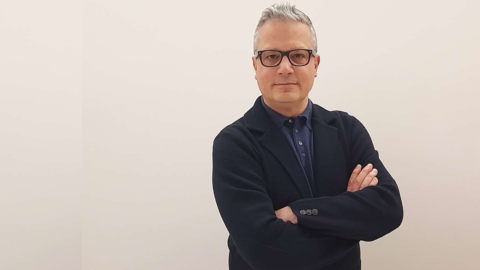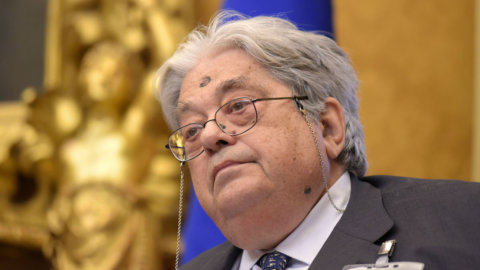“No, non è giusto addossare tutta la responsabilità sulle regioni meridionali se è stato accumulato tanto ritardo nell’impiego dei fondi strutturali europei. Le motivazioni sono tante e le colpe, se colpe vi sono, vanno addebitate a più soggetti. Ma la questione di fondo è che, se i tempi di utilizzazione di queste risorse sono tanto lunghi da far considerare concreto il rischio di perderne una parte consistente, allora diventa indispensabile una valutazione approfondita delle ragioni reali della lentezza. Operazione che non viene effettuata perché sul tema da parte del governo non pare esserci una qualsiasi strategia”.
Il presidente della Svimez Adriano Giannola non ha remore – in questa intervista a “Firstonline” rilasciata al termine della presentazione delle anticipazioni del Rapporto 2014 sull’economia del Mezzogiorno che l’istituto di ricerca pubblicherà nella seconda metà di settembre – nell’indicare quelli che, a suo giudizio, sono i veri motivi dei ritardi delle regioni meridionali nella spesa dei fondi strutturali. Ritardi che rendono ancora più problematico qualunque intervento per cercare quanto meno di ridurre il divario, “ormai strutturale” secondo la Svimez, fra il Sud e il Centro-Nord.
FIRSTONLINE – Presidente Giannola, il sottosegretario alla presidenza del Consiglio Graziano Delrio ha appena ricordato che entro la fine dell’anno prossimo l’Italia deve rendicontare l’impiego di 21 miliardi di euro relativi ai bilanci settennali europei precedenti. E che, di questi, 16 si riferiscono al Mezzogiorno. Come si può evitare di perderli?
GIANNOLA – “Il primo passo, ribadisco, dovrebbe essere quello di cercare di comprendere i perché di queste lentezze croniche. Poiché, se si sbaglia la diagnosi, la terapia con ogni probabilità sarà sbagliata”.
FIRSTONLINE – Presidente, intende dire che le Regioni del Sud sono esenti da responsabilità?
GIANNOLA – “Assolutamente no. Le Regioni meridionali hanno la loro parte di colpe, non c’è dubbio. E, in presenza di responsabilità acclarate, forse potrebbe essere opportuno l’intervento di un’autorità nazionale. Ma sarebbe il caso anche di chiedersi se le regole sull’impiego e la rendicontazione dei fondi europei sono sufficientemente snelle. Se così fosse, allora le responsabilità sarebbero quanto meno da condividere con Bruxelles. E non è tutto…”.
FIRSTONLINE – Cosa c’è di altro?
GIANNOLA – “C’è che una strategia per un più corretto impiego dei fondi strutturali dovrebbe affrontare con l’Ue e con i partner europei una questione che non si può continuare a trascurare. E che contribuisce pesantemente a tenere nell’angolo il nostro Mezzogiorno”.
FIRSTONLINE – Quale?
GIANNOLA – “ll fiscal dumping, in parole povere una sorta di concorrenza sostanzialmente sleale (pur se formalmente rispettosa delle regole del gioco), da parte di altri Stati membri Ue”.
FIRSTONLINE – Presidente, a che cosa si riferisce?
GIANNOLA – “Alla concorrenza spietata di alcuni Paesi, in particolare dell’Est europeo, nei confronti del nostro Mezzogiorno. Concorrenza legittima se è ad armi pari. Ma da una parte c’è un’area debole, il Sud dell’Italia, con i vincoli legittimamente imposti all’intero Paese dall’appartenenza all’euro, con i costi del lavoro dipendenti anche da tutele particolarmente forti, ma anche con un avanzo primario ormai strutturale. E dall’altra lo Stato X – per fare un esempio, diciamo la Polonia? – che ha una moneta nazionale sulla quale può operare per sostenere l’export, in cui il costo del lavoro è non più della metà di quello italiano, e un regime fiscale molto più vantaggioso del nostro. Se così è – e questa è la realtà – la concorrenza fra lo Stato X e il nostro Mezzogiorno può essere definita ad armi pari?”.
FIRSTONLINE – E allora che fare?
GIANNOLA – “Sarebbe indipensabile un’azione forte da parte dell’Italia nei confronti dell’Ue per ristabilire almeno in parte un equilibrio che non esiste”.
FIRSTONLINE – Per esempio, battendo i pugni sul tavolo per ottenere almeno che la spesa pubblica per investimenti cofinanziata da Bruxelles sia esclusa dal calcolo del deficit?
GIANNOLA – “Questa potrebbe essere una delle strade da imboccare. Aggiungo che sarebbe necessario anche far pesare nel confronto con i nostri partner europei il fatto che, nel calcolo del dare e dell’avere con l’Europa, l’Italia è un contributore netto”.
FIRSTONLINE – E queste strade perché, secondo lei, non vengono percorse?
GIANNOLA – “Questo andrebbe chiesto al governo. Che probabilmente risponderebbe mettendo avanti l’obbligo del rispetto del patto di stabilità interno, che non consentirebbe un vantaggio fiscale, per esempio, della Sicilia nei confronti della Lombardia. Più o meno quel che obiettò l’Europa (il commissario per la Concorrenza era Mario Monti) motivando il no a un regime fiscale più attrattivo in favore del Mezzogiorno, sulla falsariga di quello autorizzato per un’area più piccola e meno popolosa qual era l’Irlanda”.
FIRSTONLINE – Su questo fronte allora non c’è speranza?
GIANNOLA – “Temo che ce ne sia veramente poca. Però si potrebbe provare a chiedere. E anche a porre un’altra domanda, che si è posto in una recentissima intervista l’ex-ministro per la Coesione territoriale Carlo Trigilia. Per capire se siano attendibili le indiscrezioni di stampa secondo le quali il governo starebbe pensando, per chiudere la partita dei fondi strutturali parzialmente inutilizzati, di ridurre la quota nazionale di cofinanziamento. Una trovata – qui sono d’accordo con Trigilia – che, se confermata, si configurerebbe come una sorta di manovra finanziaria mascherata”.





